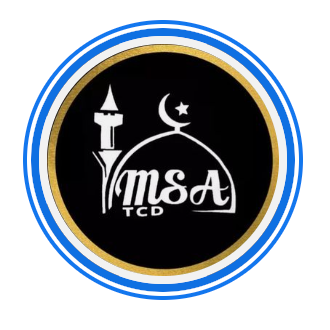 The following story caught my eye in this morning’s Irish Times [with added links]:
The following story caught my eye in this morning’s Irish Times [with added links]:
Talk by controversial UK preacher at Trinity College cancelled over security fears
By Colin Gleeson
A talk by a UK preacher at an event at Trinity College Dublin on Friday has been cancelled due to security fears.Mohammed Hijab had been due to speak at an event organised by the college’s Muslim Students Association on the topic of “hedonism”. … Mr Hijab’s invitation to speak on the college’s campus was criticised by students who said they planned to stage a protest should the event go ahead. … It is understood the group made a request to college authorities for security support but was turned down due to a lack of adequate notice. …
In a statement to Trinity News, one of the student newspapers in College, MSA President Hasan Ali said:
While we acknowledge that this decision may disappoint some members of our community, we believe it is the best course of action to ensure the safety and well-being of all.
This is a real pity. As I said when a Galway student society cancelled a controversial appearance for similar reasons (and here‘s another example), this is a failure on the part of TCD’s Muslim Students Association (TCD MSA) to protect the process of freedom of speech. Freedom of speech is not self-executing. Those who claim to support it have a duty to do so actively. It’s not enough to say free speech is important; it is necessary to be active in its defence and support. If a society such as the MSA invites controversial speakers, making a grab for the headlines, then that society must ensure that the controversial speakers actually have the opportunity to speak. Otherwise, the hecklers in a hostile audience will have a veto on the speakers. And the heckler’s veto is antithetical to freedom of speech. So, if a society such as TCD MSA invites controversial speakers, they should anticipate some pushback and plan accordingly. Asking for support late in the day is not good enough. The TCD MSA should have taken active steps sufficiently early to ensure that, having invited Mohammed Hijab, he actually gets to speak. Indeed, ensuring controversial speech on campus is the price of retaining academic freedom for a free society. It is a price we must be prepared to pay. Anything else would be a failure of freedom of speech, and it would lie at the feet not of the hecklers or of Trinity College but of the TCD MSA.
I expanded on this in the context of an earlier controversial invitation withdrawn by a Trinity society (and see also here), in which I argued that both Trinity and the society should therefore have protected the process of freedom of speech by ensuring that the debate involving the controversial speaker could have gone ahead. I don’t think that it is sufficient to say that public safety could not be guaranteed – public safety can never be “guaranteed”. As I have said above, Trinity and TCD MSA should have taken active steps to ensure that, having a controversial speaker such as Mohammed Hijab, he actually got to speak. And these active steps would have to include advance planning to put the necessary measures to ensure public safety. Indeed, TCD MSA should have put all this in place before issuing the invitation in the first place. But having issued the invitation, TCD MSA’s failure to make appropriate arrangements in time to ensure that the debate could go ahead is almost as culpable as the hecklers’ veto.
Moreover, as societies such as TCD MSA engage with colleges such as Trinity to make arrangements for controversial speakers, Colleges should not easily decline to help on safety grounds. Rather, Colleges must take every active step reasonably possible to ensure that such events go ahead. It is particularly disappointing when any university fails to protect freedom of expression. As I pointed out in the context of of another controversial university speaker, the best answer to speech is more speech – discussion might not change the other person’s mind but it can influence the neutral or undecided observer in a way that shrillness never could. Hecklers must be allowed to make their point; but, by the same token, they must not be allowed to prevent others from making theirs’. They should certainly make their protest, but they must not censor someone espousing an opposing view: they must not have a veto on the speech of others.
Bonus link: four of the papers in the current issue of the Journal of Free Speech are on campus speech (and see also here and here).
2 Reply to “Another heckler’s veto in Trinity”